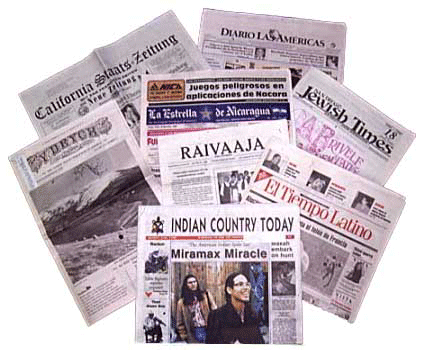Libel News:
Below you should find a series of links that open articles about libel suits. I find these articles extremely interesting reads. First of all, they describe scenarios that are very real and do occur all the time. Like it or not, when the media is doing its job some people will inevitably get upset. In some cases, they are legitimately upset, and those people would often tell you in a heartbeat that if they could trade in their money to get their good name back, they'd do it in a heartbeat. In other cases, people are simply upset because a media outlet exposed them for what they are -- a crook, cheat, or crank. Sometimes, the truth simply hurts. (Library of Congress, United States Newspaper Program)
(Library of Congress, United States Newspaper Program)
Links:
The best place to get an overview on landmark libel cases is the Media Law Resource Center's Top 10 Awards in Cases Against the Media, which is available here. It offers quick descriptions of the details involving each case, and a breakdown of the dollar amounts involved.
This is an article that appeared on CNET's newswire, describing how the Internet has made it so that libel defendants may not be able to hide behind national frontiers any longer.
This is an article in the Columbia Journalism Review about the largest libel award in Virginia history. It's a real cautionary tale about how carelessness and laziness combined with diffidence to destroy someone's reputation.
Here is an article on the U.S. federal government's website that does a standup job of identifying the evolution of libel in this country.
Here is a fascinating development described by the Poynter Institute's Amy Gahran about potential libel issues brought up when an American living in London publicly accused a man of assaulting her at a Tube station, and then posted his photograph on her blog.
Here is a recent USAToday article describing recent libel complaints springing from blogs and other communications on the Internet.
And what collection of libel news would be complete without a little bit of entertainment? Here's an article from the Associated Press about Britney Spears' recent libel suit. Essentially a judge determined that Us magazine did not defame Ms. Spears by alleging she had created a sex tape, noting that her sexuality was a component she deliberately put in the public eye.






